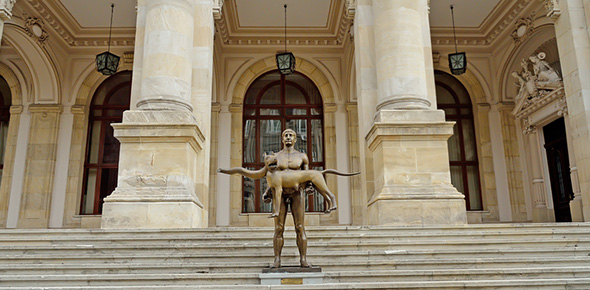Related Flashcards
Related Topics
Cards In This Set
| Front | Back |
|
Colonialism
|
-characterized by the presence of another foreign power in a homeland
-Everything was influenced by the decisions and tastes of the English society
-Shows dependence on English ideas and forms of expression
-Widespread religious undertones in writing
|
|
Neoclassicism
|
-A regard for tradition and a reverence for the classics.
-Social shift from the focus on Protestant theology to the respect for the common man-move toward democracy
-many writers tried to create an American epic, but all failed
-writing is often political or philosophical
|
|
Romanticism
|
-Imagination and intuition are favored over reason and facts
-Intense interest in nature
-potential of humans is not limited by nature
-coincidence and the supernatural are common features
-first era of American fiction
|
|
Transcendentalism
|
-A philosophy where one would seek to transcend the physical world and the senses and elevate himself to a higher moral spiritual plane
-God is universally manifested throughout nature
-One can transcend everyday reality
|
|
Realism/Regionalism
|
-A reaciton against the idealism of romanticism
-Authors attempt to create an honest version of reality
-Coincided with the country's increase in territory
-Writers found meaning in the ordinary
-Works often contain dialect and detailed settings
|
|
Naturalism
|
-A writer must observe people and society objectively and draw conclusions from conservation
-One's destiny is determined by nature, social conditions, and economic circumstances rather than by free will
-often pessimistic writers
|
|
Modernism
|
-After World War I
-Loss of importance for religion, honor, and the progress of civilization
-the future seems bleak, mechanistic, and spiritless
-writers used fragmentation and experimentation in literary works
|
|
Post-Modernism
|
-Associated with social and political upheaval of the 1960's
-attempt to integrate art and life
-A blurring of distinctions between genres
-confessionalism, beat writers, Theatre of the Absurd, and popularity of the memoir.
|





